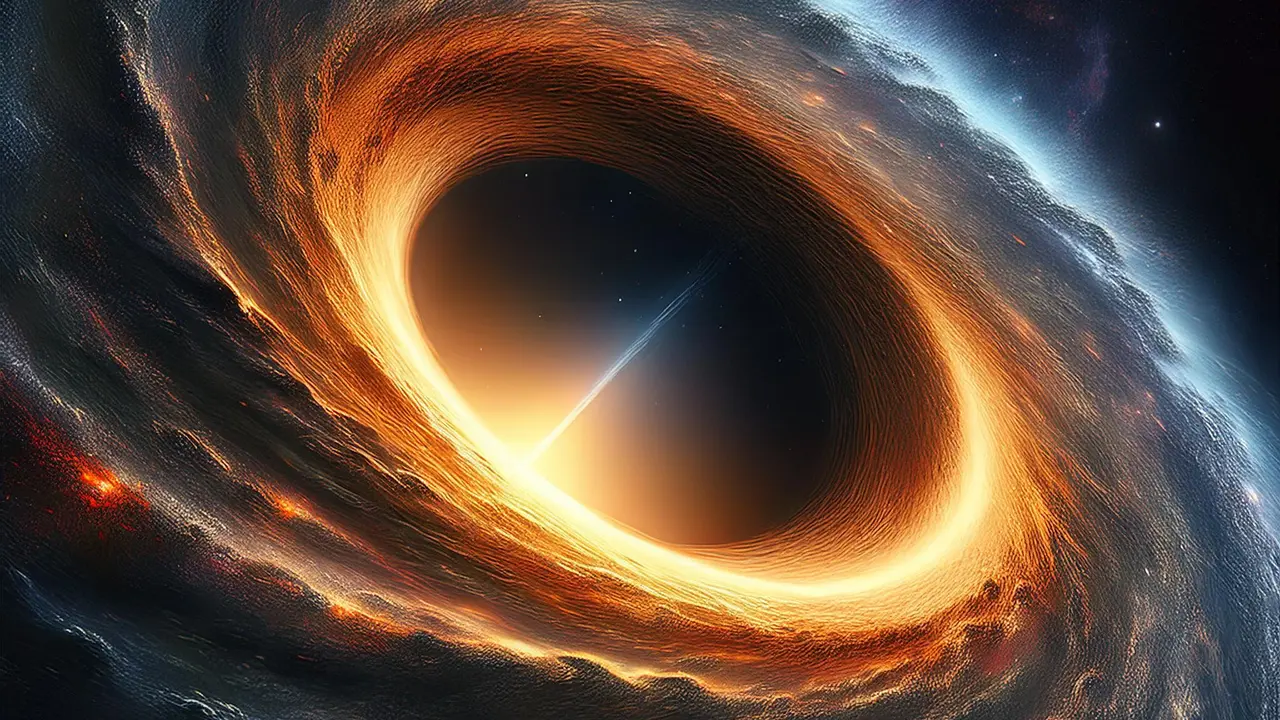Updated 16 September 2024 at 21:09 IST
Cosmic Cannibalism: Webb Telescope Captures Black Hole Starving an Entire Galaxy to Death
Astronomers using the James Webb Space Telescope discovered that supermassive black holes can halt star formation in galaxies by expelling essential gas.
- Science News
- 2 min read

In a groundbreaking discovery, astronomers using the James Webb Space Telescope have confirmed that supermassive black holes can halt star formation in their host galaxies. The study, led by an international team including researchers from the University of Cambridge, observed a galaxy known as "Pablo's Galaxy," located approximately two billion years after the Big Bang.
This massive galaxy, comparable in size to the Milky Way, has largely ceased forming new stars—a phenomenon described as "quenched." Utilizing Webb's advanced sensitivity, the team detected vast amounts of gas being expelled from the galaxy at astonishing speeds of about 1,000 kilometers per second, fast enough to escape the galaxy's gravitational pull.
The study uncovered a previously invisible wind component: colder, denser gas clouds that obstruct light from the galaxy behind them. The quantity of gas ejected is greater than what the galaxy would require to sustain star formation, effectively depriving it of the essential fuel.

Dr. Francesco D'Eugenio from Cambridge's Kavli Institute for Cosmology remarked, "The black hole is killing this galaxy and keeping it dormant, by cutting off the source of 'food' the galaxy needs to form new stars."
Advertisement
This discovery not only confirms earlier theoretical models about the influence of black holes on galaxies but also challenges previous expectations of chaotic, turbulent effects. Despite the galaxy's star formation being suppressed, the stars within it continue to move in an orderly fashion.
Professor Roberto Maiolino, also from the Kavli Institute for Cosmology, highlighted the significance of this research: "We knew that black holes have a massive impact on galaxies, and perhaps it's common that they stop star formation, but until Webb, we weren't able to directly confirm this."
Advertisement
Published in Nature Astronomy, the findings provide crucial insights into galaxy evolution and the role of supermassive black holes in shaping the universe. Further observations using the Atacama Large Millimeter-Submillimeter Array (ALMA) are planned to explore any remaining fuel for star formation in Pablo's Galaxy and to assess the black hole's impact on its surrounding region.
Published By : Garvit Parashar
Published On: 16 September 2024 at 20:48 IST
